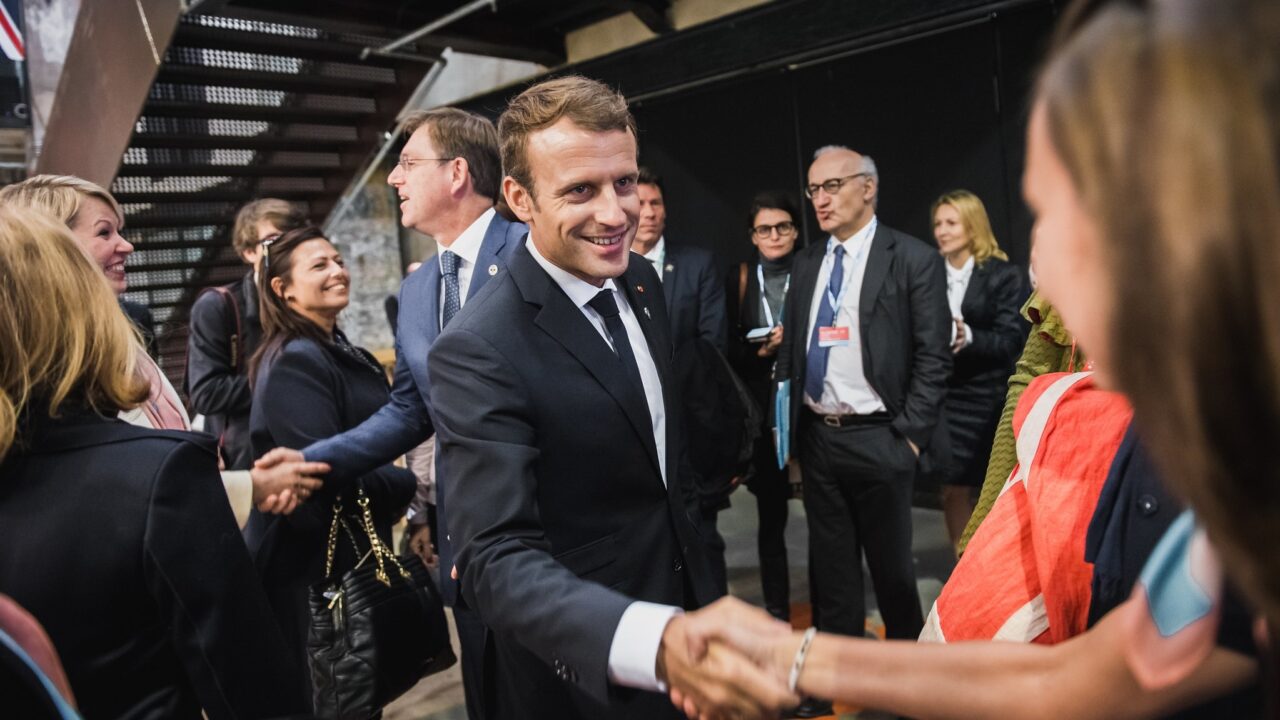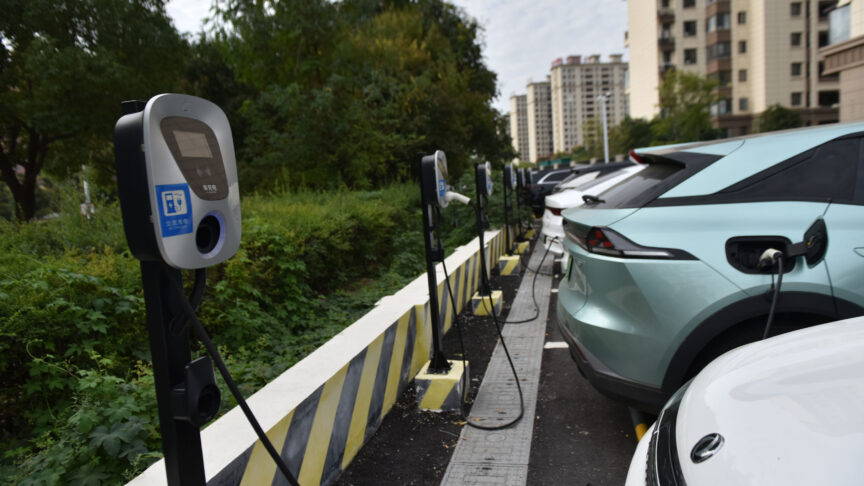France’s presidential election: How the far-right could win
Emmanuel Macron shook French politics from top to bottom. To show he did not bring the house down, he will quickly need to defend his record and reach out to lost voters
According to most polls looking ahead to next year’s French presidential election, Emmanuel Macron can count on the support of one in four voters. For France, this is quite a feat for an incumbent. In the second round, where he is likely to face the far-right, Macron would almost certainly win re-election.
In 2017, he managed to attract support from both the centre-left and centre-right. He was helped by the fact that neither of his main rivals was aiming to win from the centre-ground. However, during his presidency Macron’s popularity among left-wing voters has waned considerably – and he may now need to rely on right-wing voters more than he did five years ago. His current ratings might therefore suffer once the centre-right Republicans choose their candidate in the primaries scheduled for early December. With potential losses on the right, Macron may find it tricky to make up for this with support from the left – even if the latter remains divided, with no serious chance of any of its candidates getting through to the second round (unless they join forces, which is unlikely).
In the meantime, there is another reason to keep a close eye on the election: the resilience of support for the far-right among a third of voters. Until a few months ago, it was conventional wisdom that Marine Le Pen – leader of the National Rally party – would go through to the second round, where she would almost certainly lose to Macron. No poll has predicted victory for her, although some have anticipated a disturbingly close result between her and Macron, sometimes by barely a few percentage points. This was usually explained by the reluctance of voters on the left to back Macron, as many of them would prefer to stay at home or to cast blank votes.
Macron has only himself to blame for this unpopularity among the left. One of his first decisions as president was to abolish France’s wealth tax. This was not irrational in policy terms but, politically, it proved devastating. He was quickly labelled the president of the rich, an image later strengthened by his reform of the pension system and his lack of sensitivity on proposals to introduce a fuel duty rise (which was a direct cause of the gilets jaunes protests). He allocated key positions in the government to politicians from the right, and the government pursued an economic policy that was liberal by French standards. It is hardly surprising that many left-wing voters are now sceptical.
But the context has changed again. Since August, a new contender has emerged on the far-right in the form of Éric Zemmour – a misogynist and Islamophobe besotted with Russia, who scandal appears to follow wherever he goes. He is not yet officially a candidate but he has already caught up with Le Pen and depressed her polling share. Each can expect around 15-17 per cent of the vote.
Perhaps they will finish each other off, keeping the far-right from making the second round. But there is also the far scarier scenario to consider – in which both get through. This could happen if voters of the right cannot decide between Macron and the Republican candidate while too few voters of the left turn out. Or it could come about if right-wing voters move decisively towards the far-right options. This is perhaps the main reason why more recent polls anticipate strong support for Macron among left-wing voters as early as the first round.
On how to strengthen people’s faith in politics, France can serve as a testing ground for other democracies.
(There could be one more safeguard against an unwelcome result. French law prevents the publication of exit polls while voting is still taking place, but some media outlets in Belgium and Switzerland do so anyway. This allows the most hesitant voters to mobilise at the last minute and vote for whoever they consider a lesser evil.)
What is at stake in this election, however, is not just how to stop populism but how to strengthen people’s faith in politics. And this is where France can serve as a testing ground for other democracies.
According to an April 2021 survey carried out for ECFR, two-thirds of the French population believe that their national political system is broken. Only one in four believes it works as it should. There was a record low turnout in France’s municipal elections last year. It is unlikely to be as low at next year’s presidential vote, but this could still be a worrying sign that many French citizens are turning away from democratic politics.
This would not be Macron’s fault alone, as French disillusionment with politics is longstanding. But it is he who disrupted the country’s political system four years ago by claiming the left-right divide to be obsolete – but then failing to fill the vacuum. His inability to understand why people outside big cities could be so sensitive to rising petrol prices, as well as several of his other decisions or clumsy comments, might have convinced many voters that the ruling elite is – as ever – detached from the concerns of the rest. In short: many of those who had hoped that Macron would represent an alternative to elitist politics could feel deeply let down.
If this feeling were to become entrenched among the French, translating into declining turnout or spoiled ballots, even keeping the far-right out of power will leave a bittersweet taste. Whoever wins, he or she would find it extremely difficult to exercise power in a riven, disenchanted society. This is not least because the next National Assembly is likely to be more divided than the current one. (The legislative elections will take place one month after the presidential race concludes.) In a way, the far-right could reach many of its goals – and further consolidate its position ahead of the next presidential election in five years’ time – without necessarily winning this race.
In this sense, two far-right candidates entering the frame could further cloud this gloomy picture. Their mere presence is likely to push the political debate – and the centre-right – further to the right. This, combined with Macron’s record in power, will make his claim to represent both left and right feel even thinner. It may bring his big experiment with French politics to a failed end.
To avoid this, Macron will need to go to great lengths to convince voters of his effectiveness by showing the positive impact his presidency has had. He can reasonably point to a dynamic economy, low unemployment, and some successes in European politics. His European achievements do not quite reach the ideal set out in Macron’s 2017 Sorbonne speech where he described his vision for “sovereign, united, and democratic” Europe. But, looking at the European Union’s post-covid budget, climate policy commitments, and debates about European sovereignty, it would be unfair to say that nothing has got better.
In turn, the Republican, Socialist, and Green candidates will have to demonstrate – contrary to Macron’s diagnosis five years ago – that different political platforms offer a real choice. Stronger candidates from the Republicans and the Socialist Party than in 2017 would be only a good thing from the point of view of democracy.
Next year’s presidential election in France will give a cause for optimism if candidates manage to reconnect the people to politics and articulate a common interest and shared vision that unites the country – or at least enough of the country to create a plausible offering and win the election. Otherwise, France will prove a warning to other countries about the price to be paid for turning a system upside-down and then under-delivering on promises.
The European Council on Foreign Relations does not take collective positions. ECFR publications only represent the views of their individual authors.



